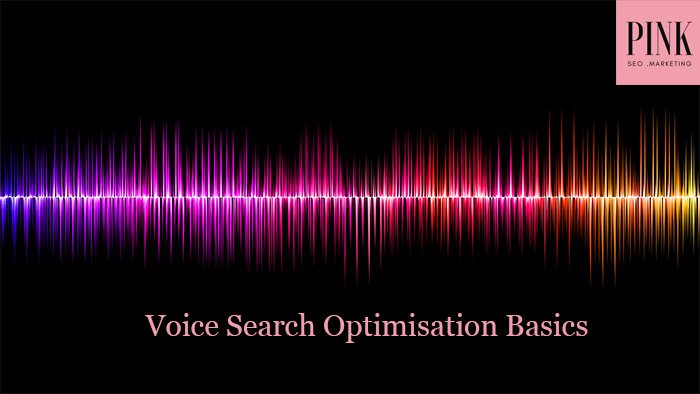How to optimise your website for voice search
- Home
- Articles and Publications
- SEO Tips
- How to optimise your website for voice search
How to optimise your website for voice search
Posted on July 25, 2019
0 Comment
I recently delivered a small video training on how to optimise your website for voice search
I was glad to notice a real interest in this topic and therefore, I decided to dedicate a whole article to it.
Voice search is likely to be a really important part of SEO in the future. Microsoft conducted a Market Intelligence survey to prepare its Microsoft 2019 voice report. They collected over 2,000 global responses representing the US, UK, CA, AU and IN.
According to research, 69% of respondents already used a digital assistant.
We are all Google users and we all have experienced trying to search for something while multitasking, facilitated by the launch of voice-based digital assistants like Siri, Cortana and Alexa. When we cannot type the text, we could find actually challenging already not to have any more the opportunity to conduct a voice search.
Let’s look at how are people engaging with voice actions.
This changes according to their search intent. If people have
- transactional,
- navigational
- or informational queries,
the way people are using voice search changes.
Let’s begin with the people using voice search in their cars: they are most likely to have a navigational intent.
Indeed, local SEO is one of the first elements that you should take into consideration to answer the question on how to optimise your website for voice search.
According to Microsoft’s research, 65% of people use voice to get directions and 48% of people have used it to search for local business.
This reminds us of the importance of Local SEO.
Often, people conducting voice search will likely use the phrase “near me”. For example, if I fancy treating myself and my friends to a proper afternoon tea, I’m more likely to say “Hey Siri, afternoon tea near me please,” than “afternoon tea in Hammersmith.”
To appear in the relevant results for such queries, though, you don’t add the actual phrase “near me” to your content, of course. In this case, Google will use my location to understand which bakeries are closest to where I am at the moment, which might be Hammersmith. Google, as most search robots, use Business Listings information. To optimise for Business Listings information, make sure to claim or create your Google My Business page, Bing local business, Apple Maps etc.
Read more: How to use local SEO for small business in 2019
On there, make sure you’ve added all the necessary information, such as brand name, address, phone number, opening hours, etc. and make the data in the various citations always consistent.
Also, make sure to add localised optimised on-site content and please do not ever forget the importance of customer reviews!
Reviews will also help you in the case of the transactional queries (“I want to buy“, “I want to book“)
According to Microsoft’s research, 25% of people expect their digital assistants to help them make a purchase already! This creates a brand new term: v-commerce (voice e-commerce) shopping,
The best tips on how to optimise your website for voice search in the case of e-commerce are:
Make sure your e-commerce site has:
- product-specific content
- schema markup on each of them with the right type of entities
- Customer reviews
- FAQs (they’re fantastic to provide content with the conversational tone and language that is exactly the way we use voice search!)
Conversational language is another important factor to rank for voice search.
The differences between spoken and typed queries may cause different SERP results. Therefore, if your competitors’ websites have been optimised for voice search, they have better chances of engaging your potential customers or subscribers!
With the Hummingbird update in 2013, the concepts of typed and spoken search changed a lot.
Read more on Google’s main algorithm updates in What is a Google Penalty and how to avoid it
The updated algorithm helped Google process natural language to consider the users’ intent and the context of the query. Since that moment, search questions structured in sentences have returned more relevant answers.
And with voice search, people typically ask a long question as they would normally speak.
This makes long-tail keywords & questions always more important. Indeed, when they are searching for information via voice assistant, people behave as if they’re talking to a human. Most of us don’t use short, choppy keywords. We ask questions and use long phrases.
Read more: What are long-tail keywords and why do they convert more?
When it’s about informational queries, with voice search people search for a quick fact.
One of the most significant concerns about voice search is that people using voice search on mobile will get only ONE top result. This one result is called “position zero,” and, obviously, everyone wants it.
By 2020, half of the searches will be conducted by voice. So by 2020, ranking in Google’s first page might possibly not be enough any more. Half of your potential customers may not be able to see your website even if you’re fourth in the SERP!
Ranking number one — or securing position zero — will be the main goal for every business owner.
How to achieve this is not easily explainable.
In addition to optimising your content for a quick answer with a conversational tone, you cannot avoid using structured data
Structured data is code added to HTML markup and used by search engines to better understand your site’s content. Using structured data, you can help search engines crawl and read your content efficiently.
Schema is a very strong and easy signal for the search engines and it can be very helpful when you aim to achieve position zero. It would be wrong to affirm that you won’t become a featured snippet without it, so we cannot affirm that it is 100% required, but it would be much more difficult to achieve it without structured data.
We can surely affirm that optimising it for featured snippets is a good factor on how to optimise your website for voice search.
Here are a few tips on how to optimise your site for featured snippets:
- Find queries where you are currently ranking in Google’s top 10
- Identify questions related to that query
- Choose a smart way to structure your answer (paragraphs, tables and lists currently stand good chances to help you gain a featured snippet)
- Provide an answer that adds value
- Make it short. Think about the character count. Does it fit on a mobile screen?
- Write the answers so that it sounds straightforward and natural when spoken aloud, not mechanical
- Make it easy to find (Use the SEO best practices + schema + fast loading pages).
Here’s a little video training on Search Intent and how Google’s SERP is shaped in the different cases:
Read more: What are featured snippets? An easy guide to Rich Snippets
Page speed is another must in voice search optimisation.
A person using a voice search is likely on the go and/or in a hurry! For this reason, to those searchers, page speed is a really high priority.
As a first step, analyse your current website speed with Google’s PageSpeed Insights. You will want to consider mobile speed particularly, as it is more important than desktop for voice search optimization.
In case you have any question on how to optimise your website for voice search or would like to ask us assistance with any part of it, please do not hesitate to contact us!



